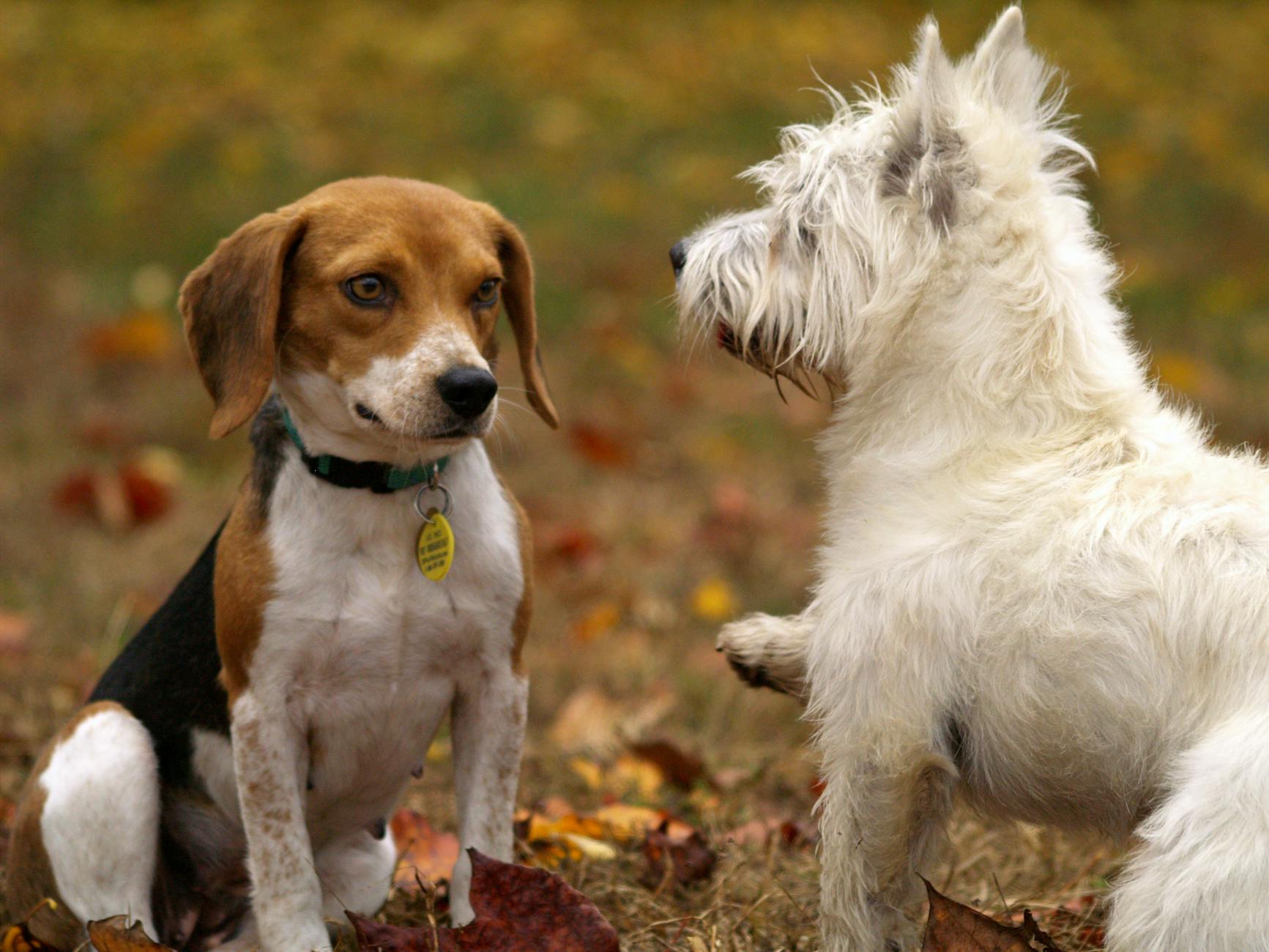How to Harmonize Pet Management with Nature in Australia

Respecting Nature's Balance
Exploring the Blue Mountains' rich biodiversity, particularly at landmarks like Echo Point and the Three Sisters, reminds us of our duty to safeguard these habitats. Our pets, though cherished members of our families, can impact the delicate balance of the local ecosystem. By understanding these effects, we can help mitigate potential disturbances.
Understanding Native Wildlife
The Blue Mountains National Park teems with diverse wildlife, from marsupials to intriguing bird species. As a park ranger, ensuring the safety of these creatures is vital. Understanding the needs and behaviours of native species helps inform strategies for minimizing human impact. When visitors come equipped with an anti bark collar, it lessens disturbances to the park's tranquil environment.
Effects of Pets on Ecosystems
Pets in natural spaces can be a source of concern when managing wildlife. Introducing domestic animals can impact behaviour and disrupt the already delicate ecosystems. It's crucial to consider equipment like invisible dog fence systems that help maintain personal property boundaries, preventing pets from straying into wildlife habitats.
Minimizing Environmental Impact
Using eco-friendly innovations like GPS dog tracking collars aids in monitoring pets without a constant human presence, reducing the impact on nature. Such technology not only ensures pets remain safe but also aligns with conservation goals to minimise disruptions in the park. By employing these tools, we actively contribute to preserving the delicate balance of the ecosystems within the park.
Managing Pet Behavior
Understanding the dynamics of pet behavior is crucial while exploring the serene trails of the Grose Valley. As someone who values harmony between humans and wildlife, I've witnessed first-hand the challenges posed by untrained pets. While out on patrol, I often advise visitors to consider a humane approach to controlling barking through options like a citronella dog collar. These collars emit a harmless spray as an alternative to a shock collar, aligning with eco-friendly innovations that ensure we maintain tranquillity without causing distress to our canine companions.
Training techniques are diverse and should focus on positive reinforcement, helping pets adapt to public settings without disturbing native wildlife. A well-behaved dog not only enriches the walking experience but also respects the surrounding habitat. For example, training your pet to respond to commands through rewards or clicker training can significantly reduce instances of barking or wandering off the designated paths.
Implementing technology can further aid in monitoring and managing pet behavior. Many wildlife enthusiasts, like myself, find value in GPS collars, enabling owners to track their pets and prevent them from venturing into protected areas. Adhering to park guidelines regarding pet management ensures not only the safety of native fauna but also enhances the overall experience for all visitors. By promoting responsible pet ownership, we can protect our precious ecosystems and allow all creatures to thrive peacefully in the beauty of the Australian wilderness.
Promoting Wildlife Safety
Handling Interactions with Pets
Navigating the challenges of wildlife management in the Blue Mountains necessitates a deep understanding of both natural and domestic species interactions. Our beautiful landscape, particularly near Grose Valley trails, demands a balance that respects native wildlife while accommodating pet-owning visitors. Given this, handling interactions between wildlife and pets is paramount.
It is crucial to stay informed about technology that supports maintaining this equilibrium. Devices like bark collars serve an essential function in curbing excessive noise from visiting dogs, which can disturb the local fauna. Innovative options, such as citronella spray, offer an eco-friendly alternative to ensure these devices are minimally intrusive for the animals.
Moreover, training collars dogs can be harnessed by pet owners to guide their pets thoughtfully, reducing incidences where unleashed dogs might venture beyond designated paths to potentially unsafe zones. Providing guidelines about these technologies at entry points and through digital signage along trails can further educate visitors, ensuring a reciprocal understanding of the necessity of these measures for preserving our surroundings.
These green innovations are not merely about convenience but an extension of our commitment to conserving the unique ecosystem of the Blue Mountains, where every resident—human, domestic, and wild—can thrive in harmony. This approach equips us to tackle challenges head-on, ensuring the serenity and biodiversity of Echo Point and beyond are maintained for future generations.
Educating Pet Owners
Signage and Information Stations
Managing the delicate harmony between visitors and wildlife in parks like Blue Mountains National Park is vital. One way we achieve this is by utilising educational signage and information stations. Positioned at key locations, these signs impart important guidelines on responsible pet ownership, particularly about limiting disturbances to native fauna. They cover various topics, including the use of anti barking collar devices that minimise noise pollution. Promoting the benefits of such devices helps protect the natural serenity and wildlife within our unique ecosystems.
Workshops and Community Events
Engagement through workshops and community events further supports public education efforts. These gatherings serve as platforms where both park visitors and residents can learn about eco-friendly innovations in pet management. For instance, discussing the application of electric collars dogs highlights how technology can be leveraged to minimise environmental disturbance and enhance coexistence with nature. Workshops offer hands-on demonstrations, enabling attendees to experience sustainable solutions first-hand.
Leveraging Online Resources
Additionally, leveraging online resources provides continuous opportunities for education. Conservation-focused newsletters, podcasts, and digital guides are excellent for disseminating up-to-date practices and eco-friendly product reviews. These resources ensure that concerned pet owners and visitors, like those walking through the Grose Valley trails, are well-informed about the latest in humane pet control technology. Through both physical and digital means, the aim is to empower individuals with the knowledge necessary to make informed and environmentally conscious decisions.
Best Practices for Harmony
Eco-Friendly Pet Products
Incorporating eco-friendly pet products can significantly enhance our conservation efforts around the Blue Mountains. For pet owners wishing to wander through the breathtaking Grose Valley trails or visit the renowned Echo Point and the Three Sisters, opting for sustainable products is a commendable choice. These products range from biodegradable waste bags to toys made of recycled materials. By selecting eco-friendly items, we not only reduce waste in our cherished environment but also set a sustainable example for others. Remember, every small change can influence the greater ecosystem profoundly, making this a shared responsibility for those who visit the area.
Collaboration with Local Authorities
Working hand-in-hand with local authorities is crucial for maintaining the delicate balance of our natural habitats. Collaboration allows us to implement effective frameworks for wildlife management and develop policies that encourage responsible behavior in park areas, such as Wentworth Falls Lookout. This partnership also facilitates training programs for local guides and the establishment of clear guidelines for pet owners to ensure they adhere to park rules. Through unified efforts, we can better manage the effects of pets on ecosystems and safeguard the stunning landscapes we hold dear.
Continuous Education and Adaptation
Ongoing education and the willingness to adapt are vital in our mission to foster a harmonious relationship between pet owners and wildlife. Whether through attending workshops, reviewing the latest research, or engaging in community dialogues, understanding the latest environmental trends and eco-friendly innovations is essential. Continuous learning ensures we remain informed about the best practices to protect native wildlife while enjoying the beauty of the park. By staying educated, we empower ourselves and others to make informed decisions that benefit both our furry companions and the natural wonders they explore.


